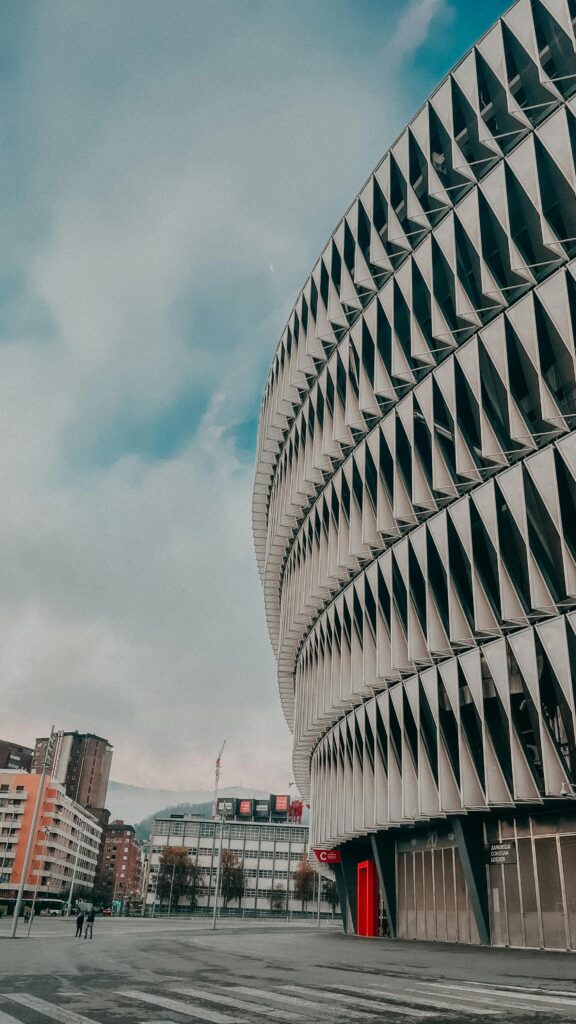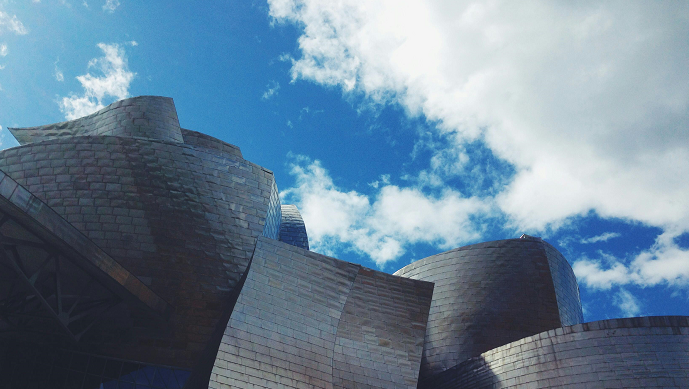ENJOYING AND LEARNING with ERASMUS+
DAY 1 – TUESDAY, 3rd JUNE
We started the week as we usually do, by welcoming a group of adults who, thanks to the Erasmus+ educational mobility programmes we organise together with the MIS Foundation (Poland), have come to Bilbao to learn about different initiatives in the field of values and citizenship.
Through visits, workshops, and participatory activities, we’ve shared experiences that have helped us all learn from one another.
After the introductions, our first activity consisted of an educational gymkhana in which we tested the group’s different skills through various gamified activities. Teamwork, problem solving and language skills were some of the competencies we worked on.
It was a great experience and everyone got stuck in. And, as with any game worth its salt, we had our own awards ceremony.
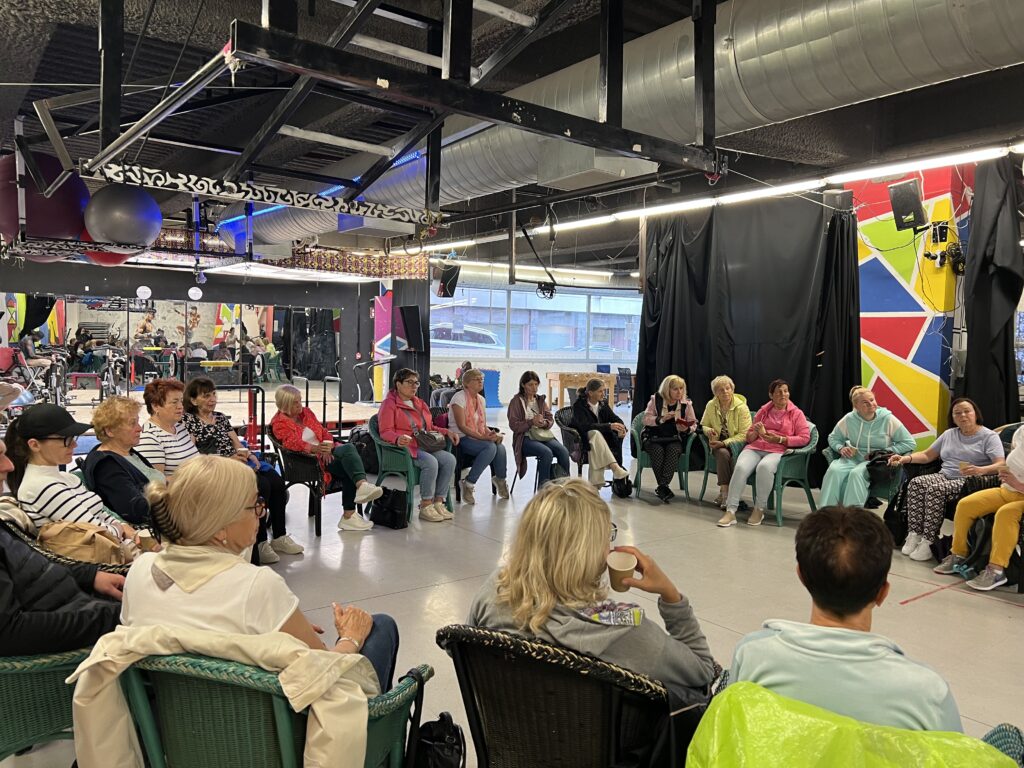
Next, we head to the meeting point with the organisers of Diversitour, an initiative promoted by Bilbao City Council that gives us the opportunity to learn more about Bilbao La Vieja and the San Francisco neighbourhood. This intercultural tour allows us to learn more about its history, its transformation and, of course, its diversity, which we appreciate better thanks to the testimonies of the people who live there.
This experience allowed us to reflect, together with KOOP SF 34 staff, on the importance of inclusion, social change, and coexistence in multicultural environments.
After sharing what we had learnt that day, we said goodbye, as we still had a week full of activities ahead of us.
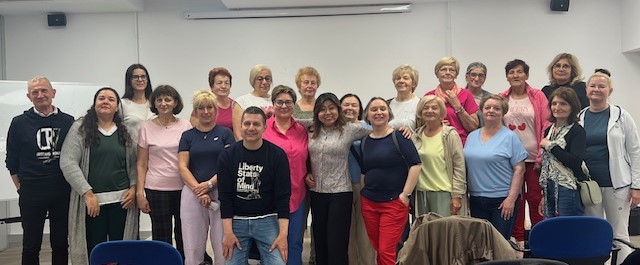
DAY 2 – WEDNESDAY, 4th June
A new day and new goals. This morning, we got together in Getxo, where people from different local groups told us about their experiences with integration.
Darling Tuchany from Kosmopolis and volunteers from the Moviendote Association gave first-hand accounts of the mechanisms that the municipality makes available to migrants, as well as the key role that associations play in integration processes.
The workshop was an opportunity to reflect on the importance of creating local support networks and spaces for active participation that promote inclusion in host societies. The experiences shared by the speakers not only highlighted the challenges faced by many migrants, but also the community-based initiatives that seek to build a more just, equitable and cohesive society.
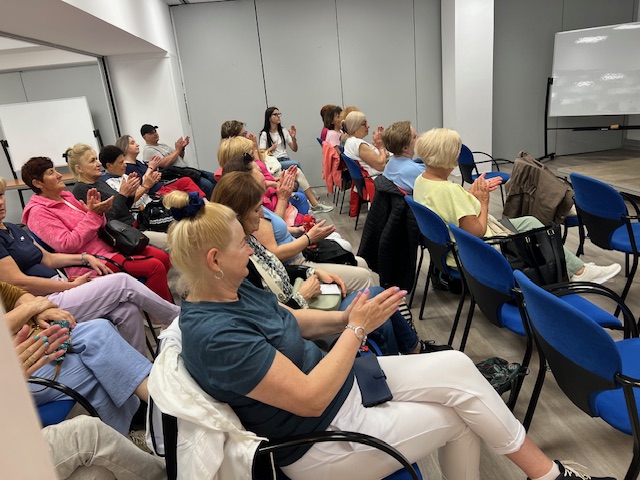
The exchange got everyone talking and brought the group and local entities together. They found common ground and shared lessons learned about coexistence and respect for diversity. This is definitely another step forward in our intercultural learning journey, and it is great to see how everyone is benefiting from it.
DAY 3 – THURSDAY, 5th of June
Thursday began at Bilbao City Hall, the starting point for a cultural walk along the banks of the estuary. Along the way, we discovered some of the city’s most characteristic places, while learning more about its history, architecture and urban transformation.
During the walk, we shared with the group various facts and interesting details about Bilbao City Council, Isozaki Towers, the Zubizuri Bridge, the Guggenheim Museum and the University of Deusto. This route allowed us to contextualise the profound evolution that Bilbao has undergone in recent decades, marked by both aesthetic and social renewal that began in the early 2000s.
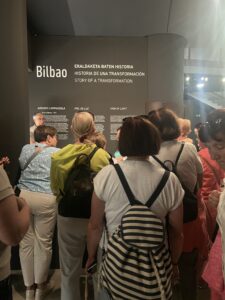
Our final destination was the Itsasmuseum, where a guided tour awaited us, helping us to understand the role that the port has played in the development of the city: from its industrial past to its conversion into a modern metropolis, open to the world and globally connected.
An experience that brought us closer to the history of Bilbao and invited us to reflect on the processes of urban change, sustainable development and the relationship between local identity and international projection.
DAY 4 – FRIDAY 6th June
To conclude our week of intercultural learning, we visited the Athletic Club Museum, a place where football represents not only a sport, but also a social phenomenon deeply rooted in local identity.
During the visit, the group learned more about the history of Athletic Club, a team that has remained faithful to a philosophy based on commitment to its land and its people. Through objects, images and stories, they came to understand how this club has become a symbol of belonging and collective pride, beyond sporting results.
Athletic is a unique example of how sport can become a driving force for integration and social cohesion. Generations, cultures and diverse backgrounds coexist in its stands. The group reflected on the value of football as a universal language, capable of building bridges and creating community. We also learned about social initiatives promoted by the club through its Foundation, aimed at promoting inclusion, equal opportunities and respect for diversity.
This last day was a great way to end our Erasmus+ mobility experience in Bilbao, connecting values such as teamwork, local identity and coexistence with something as everyday as sport. A grand finale that leaves us with shared learning, vivid emotions and a strong sense of community.
